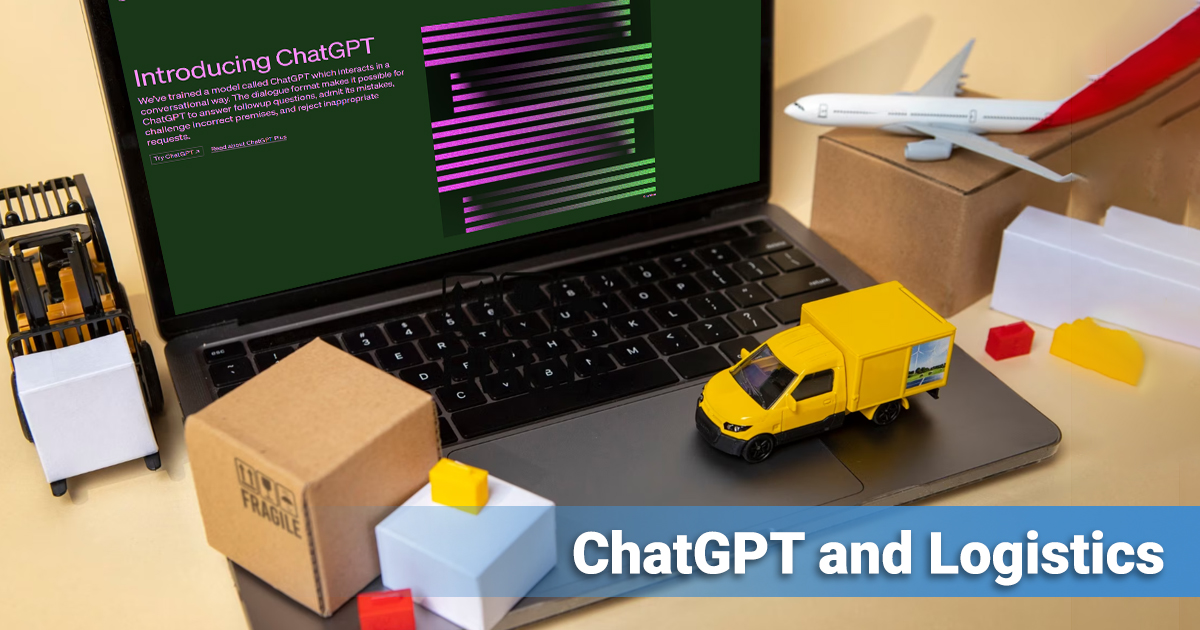
ChatGPT is revolutionizing the chatbot industry. But, can it also be transformative in supply chain and logistics? With cutting-edge machine learning methods, this tool can perform tasks previously only possible with human intellect. For example, ChatGPT can solve math operations, code software equations, respond to user inquiries, or even produce literary works.
Since its release in 2022 from OpenAI, ChatGPT has astounded the public with its uncanny ability to provide comprehensive replies at incredible speed.
ChatGPT stands out from the competition with its more sophisticated features and intuitive interface. Explaining the concept, Laure Soulier – an Associate Professor of Computer Science at Sorbonne University (Paris) – states: “ChatGPT is not a breakthrough, but rather an improvement of existing models and contributes to democratizing artificial intelligence to the general public through an accessible, conversational interface.”
Learn more about how AI can support logistics and supply chains here.
How Can ChatGPT Help Supply Chain Processes?
1. Faster Customer Service
ChatGPT holds the promise of transforming supply chain management as we know it. It offers an innovative communication solution. It allows users to generate original text and have automated conversations with customers or suppliers. This efficient technology can help streamline operations and boost productivity.
2. Data Analytics Capabilities
Moreover, ChatGPT can rapidly and accurately analyze big datasets, thus providing key insights to aid in the effective management of supply chains.
3. Better Use of Workforce
ChatGPT allows you to automate tedious tasks, such as tracking orders and managing inventory, allowing your personnel to focus on higher-value duties. Imagine not having to worry about mundane activities so that you can use employee resources in more meaningful ways.
What Are The Challenges Of Using Chatbots for Logistics Customer Service?
Utilizing chatbot technology and related customer service solutions to streamline logistics operations has become attractive in recent years. However, despite the benefits, there are some drawbacks to relying on these technologies.
Chatbots can be a major frustration for customers, as they typically must address queries with precise solutions. Additionally, understanding more detailed questions or requests can be difficult for many chatbots and prevent timely resolutions. This can spur further dissatisfaction among customers who may feel helpless when they need help the most.
Keeping up with the ever-evolving tech advancements in chatbot development can be challenging for businesses. As new technologies emerge, businesses should ensure their chatbots can remain current to render top-notch customer service.
Study Its Benefits And Drawbacks
ChatGPT can revolutionize supply chain management by allowing companies to communicate effectively with customers and vendors, crunch data expeditiously, and automate boring jobs. With this powerful AI technology, firms can upsurge productivity and render better consumer service.
Although utilizing chatbots in the logistics customer service industry may have a few obstacles, which regular updates can quickly solve, this will guarantee that they remain functional and relevant to customers’ needs.
SEE ALSO:
